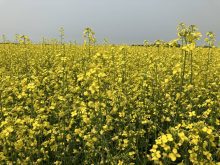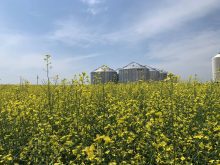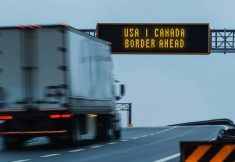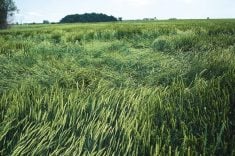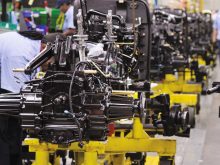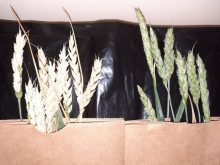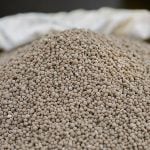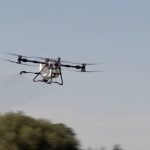As much as I’m impressed and fascinated by the advancement of electric vehicles (EVs), the prospect of someday having no choice but to own one still terrifies me. I don’t get out on the open road much these days, but I still don’t relish the idea of losing charge miles from anywhere and even more miles from a decent charging station. Of course, having run out of gas several times in the past with the gas-burning vehicles I’ve already owned — and having just now had to put my phone in to charge because it died again while I was using it — this worry says much more about my lack of planning than it does about the current state of EV technology, but why else do you think I’m terrified?
On a related note, I also wasn’t planning to have to write another defence of the EV industry, but here we are, thanks to the Chinese government eed on Canadian goods, in retaliation for the Trudeau administration’s 100 per cent tariff imposed last fall on Chinese-made EVs (plus some specific hybrid vehicles) and 25 per cent tariff on Chinese steel and aluminum.
Beijing’s new tariffs — which follow an “anti-discrimination” investigation it launched against Canada last fall — went into effect March 20 and include a 100 per cent markup on imports of Canadian peas, canola oil and canola meal, as well as 25 per cent tariffs on certain Canadian pork, fish and seafood goods. Mind you, unlike Canada’s canola-related exports to the U.S., which are mostly in oil and meal, China’s imports of Canadian canola are mainly in the form of raw seed — which isn’t included in those new tariffs but is now under a separate “anti-dumping” investigation by China’s commerce ministry.
Much like the retaliatory duties Canada imposed on certain imports from the U.S. after the Trump administration’s recent tariff binge — or like any country’s retaliatory tariffs, for that matter — China’s new duties are intended to hit Canada where it hurts. It wouldn’t make much sense for China to impose tariffs on something we don’t produce yet in significant amounts — you know, like EVs.
Herein lies the problem. Several observers of the Canadian political scene — both within and outside the twittersphere — suggest making this problem go away would be as simple as walking back our tariffs on Chinese EVs. Why, they argue, should we go out of our collective way to protect an “untested” industry — even if that nascent domestic industry is up against “China’s intentional, state-directed policy of overcapacity and oversupply, as well as its lack of rigorous labour and environmental standards” in Ottawa’s words?
To be clear, not many officials in Canada are asking Ottawa to rescind those EV tariffs — not even the opposition Conservatives, for whom the direct consequences of a Liberal government’s decision would normally be sweet, fresh-cut political hay. To quote the Conservatives’ ag critic John Barlow on March 18: “Canadian tariffs on Chinese EVs, steel and aluminum were a legitimate response to illegal Chinese dumping, unfair trading practices and national security concerns.” Rather, stakeholder groups are instead calling for engagement with China on a solution, plus compensation for affected farmers in the meantime.
Like I’ve said here before, doing nothing was not an option for Canada, which has invested significantly to develop a domestic EV industry. Is that a case of government picking winners and losers, a charge levelled against many public investments in the past? Maybe. But for a government that’s committed itself to have both a low-carbon transport economy and an auto manufacturing sector, it makes sense to put up funding toward such alternatives, which by definition will be “untested” until either they’re tested or we abandon the whole dichotomy.
This desire to get in on EVs is also not just a matter of a government trying to break Canada out of its legendary role as “hewers of wood and drawers of water,” although that’s certainly part of it. That quaint phrase, by the way, was coined in the Bible to refer to lives of bound servitude (Joshua 9:21-27), but was applied to Canada by Toronto economist Harold Innis back in 1930, referring instead to how Canada’s resource-heavy economy (lumber, minerals, crops et cetera) had bound us to rely on more industrialized countries buying our stuff.
Mainly, though, it’s that we find ourselves again in a situation where our “tested” industries are up against a different test: customers who have weaponized their market position. Even before Donald Trump and his obsession with protectionism under the wispy pretence of “national security,” we saw it when China blocked some canola and imprisoned Canadian nationals after Canada put a Chinese oligarch under mansion-arrest on a U.S. warrant. We see it in U.S. commodity futures whenever a big player such as China announces, then cancels, a major purchase. And we’re seeing it now, where China appears poised to bet its own substantial appetite for canola that Canadian buyers would rather have cheap Chinese EVs and steel than any domestic options.
Not even Canada’s “tested” industries are indispensable enough to pass that test on their own. As for “untested” industries, again, it may look like Ottawa, by imposing specific tariffs on China, is picking our winners and losers. But this case, and likely many more to come, will boil down to how comfortable we are allowing other countries to pick our losers.
Correction
This one is on me: on the front page of the March 4 issue (“Finding the right fit”) I tweaked the lead paragraph of Don’s article to refer to a panel discussion as being held “last month” at Ag Days in Brandon. You all know Ag Days was in January, Don knew it was in January and even I knew it was in January. What I forgot was the day the article would actually appear in your mail. My apologies for any confusion.



